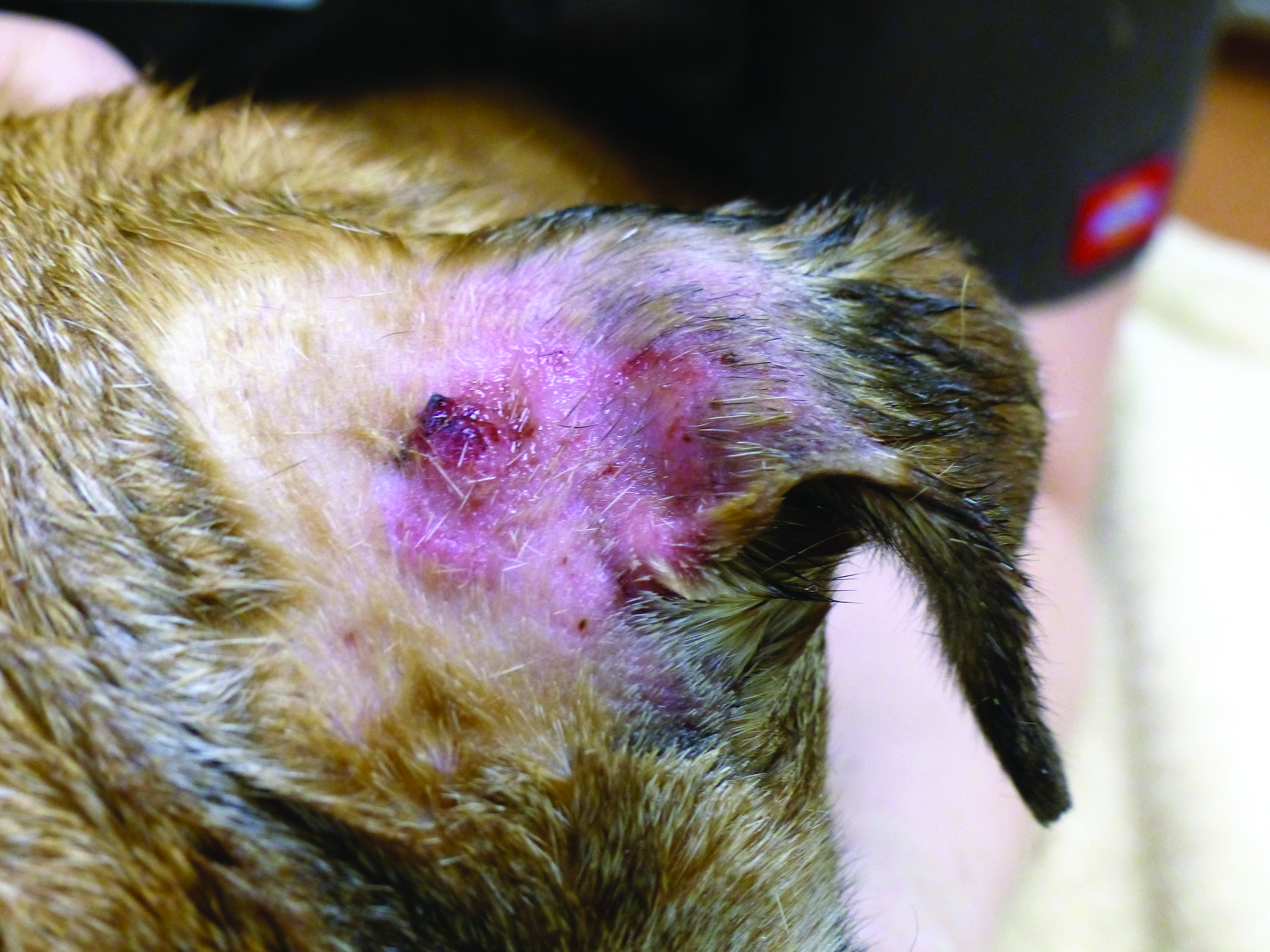One of the most common diseases to affect cats is gum disease, otherwise known as periodontal disease. It is estimated that over 80 percent of cats, two years old and older, have some form of gum disease. Sometimes cats younger than one year old have symptoms. The two forms of the disease are gingivitis and periodontitis, and both begin when calculus and plaque are deposited near the gum line on cats’ teeth.
Plaque is a biofilm made mostly of bacteria (including streptococcus), which is sticky and adheres to teeth. Plaque is difficult to see with the naked eye. Over time, if the plaque isn’t brushed off or otherwise removed, it combines with food debris, saliva, and minerals and becomes hardened, forming tartar. Tartar, or calculus, is found along the gingiva (gum line) and eventually inflames the gums. It is the buildup of tartar on teeth that causes gingivitis. Gingivitis can be reversed with proper treatment by your veterinarian.
Symptoms of gingivitis include:
■ red, swollen and painful gums
■ gums that easily bleed when gently rubbed
■ yellow deposits on teeth
Occasionally, gum infections are symptoms of other diseases, including nutritional disorders, feline panleukopenia, feline viral respiratory disease complex, kidney and liver failure, and immune disorders.
Treatment for gingivitis:
■ professional cleaning by a veterinarian
■ home dental care program, including regular teeth brushing
■ special diets or supplements may be necessary to help prevent future gingivitis
If gingivitis is left untreated, the tartar continues to grow and deposit under the gum line, and the progression of the disease may cause periodontitis. Bacteria in the plaque produce toxins and can irritate the gums. An inflammatory response can cause destruction of the gingiva, cementum, alveolar bone and periodontal ligament that support the teeth. Spaces form between the teeth and gums and become infected. Abscesses of the teeth or roots can be caused by periodontitis.
Signs of periodontitis may include:
■ bad breath
■ eating habits change or appetite is diminished because it hurts to chew
■ weight loss
■ ungroomed appearance
■ loose teeth or teeth that have fallen out
■ tartar deposits
■ pus from gums
Periodontitis is usually irreversible; however, it can be treated. Once damage to teeth roots have occurred, it is rare for the tooth to develop strong roots. Also, the bacteria can be absorbed by the gums and cause other serious diseases.
Treatment for periodontitis:
■ professional cleaning by a veterinarian, which may include teeth extraction
■ antibiotics after surgery
■ follow-up home dental care program, including regular teeth brushing
■ special diets or supplements might be necessary to help prevent future degeneration of teeth
Your cat’s health regimen should include dental hygiene, good nutrition and exercise. Your veterinarian can help show you how to brush your cat’s teeth. A step-by-step explanation of brushing your cat’s teeth is available at: / www.petmd.com/cat/centers/nutrition/slideshows/steps-to-save-cat-teeth
Cat teeth brushing videos are available on YouTube.
Dr. Rebecca Diaz, DVM is the owner of The Cat Clinic, a feline-only veterinary clinic located at 67870 Vista Chino, Cathedral City. 760-325-3400, www.catcitycat.com


